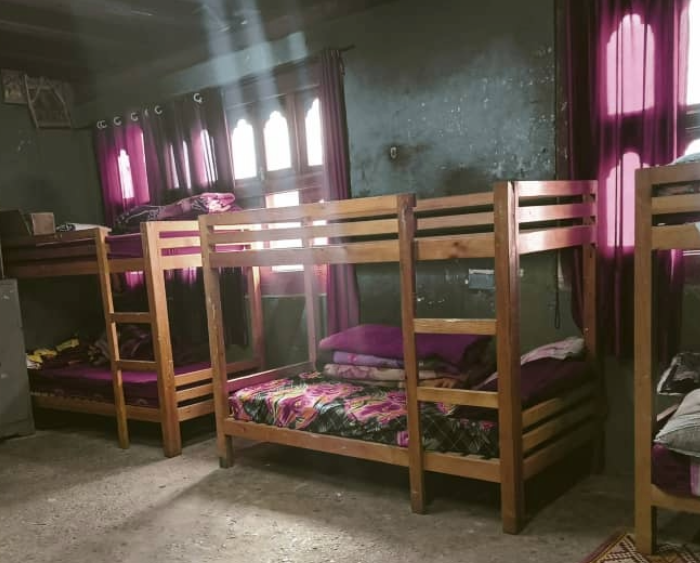Desang Tenzin '28 awarded Projects for Peace grant to improve monastery living conditions

Economics and computer science double major Desang Lhaki Tenzin '28 grew up in Bhutan, where many monasteries face significant resource challenges. With the support of a Davis Projects for Peace grant, Tenzin is determined to change this.
Tenzin's project will specifically address the Eutokha Monastery, which is situated atop the hills among Bhutan's green mountains. The monastery's strained resources impact hygiene, safety, education, and the overall well-being of its young monks, many of whom are orphans or come from economically disadvantaged backgrounds.
This summer, Tenzin will be heading to Paro, Bhutan in the East Himalayas to facilitate changes in the temple.
“The temple I chose to support through this project is close to a very popular tourist area,” Tenzin shared. “I thought that if I could do something for the temple, it would promote peace at a global level to promote peace and words of peace and kindness to tourists and create a ripple effect across the world.”
Tenzin's plan for improving the monastery's conditions include:
- Introducing modern appliances and infrastructure tailored to the monastery's unique needs while minimizing disruption to their traditional lifestyle.
- Sourcing equipment and materials locally, ensuring sustainability and community involvement.
- Repainting the dorms and classrooms to encourage learning and engagement for young children to foster a happier life.
- Establishing a feedback system with the monks to continually refine the solutions.
- Involving monks and conducting an engaging session to help with moving and installation of equipment to reduce labor costs while getting their feedback on the materials and setup.
- Translating instructions on use of materials for monks who lack English knowledge.
- Starting a GoFundMe initiative to address larger scale renovation for the poor wooden floors and walls.
- Creating a consented social media page to record progress and accomplishments of the project and raise awareness about many of the monasteries with such conditions creating ripple effects.
“A lot of monks are suffering with poverty because people send their children to monastery if they can't raise a child. This is why most children at the monastery are orphans or come from very poor backgrounds,” Tenzin explained.
Many temples similar to Eutokha Monastery have aging infrastructure that creates harsh living conditions for the monks who reside there.

“The lack of washing facilities like washing machines makes maintaining hygiene difficult, particularly during cold winters, while outdated and unsafe kitchen facilities, including malfunctioning electrical sockets and reliance on old rice cookers, pose safety hazards,” Tenzing wrote in the project proposal. “Insufficient winter bedding leads to poor living conditions and increased vulnerability to the cold. Additionally, limited access to essential educational resources, such as textbooks, printers, and scanners, hinders learning opportunities and intellectual growth. Addressing these issues is vital for improving their quality of life and enabling them to focus on their peaceful and educational development.”
About Projects for Peace
Projects for Peace is a global program that encourages young adults to develop innovative, community-centered, and scalable responses to the world’s most pressing issues. Students submit a project proposal, which includes a description of the project (who, what, where, how), expected outcomes, and the prospects for future impact. Along the way, these student leaders increase their knowledge, improve skills, and establish identities as peacebuilders and changemakers. In 2022, the administration of the program moved from its original location at the Davis United World College Scholars Program to its new home at the Middlebury College Center for Community Engagement
Each year a student or student team's project proposal is selected from Lake Forest College and awarded a $10,000 grant to help them accomplish their project. Projects are implemented over the summer.

